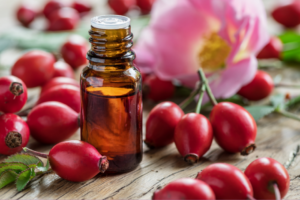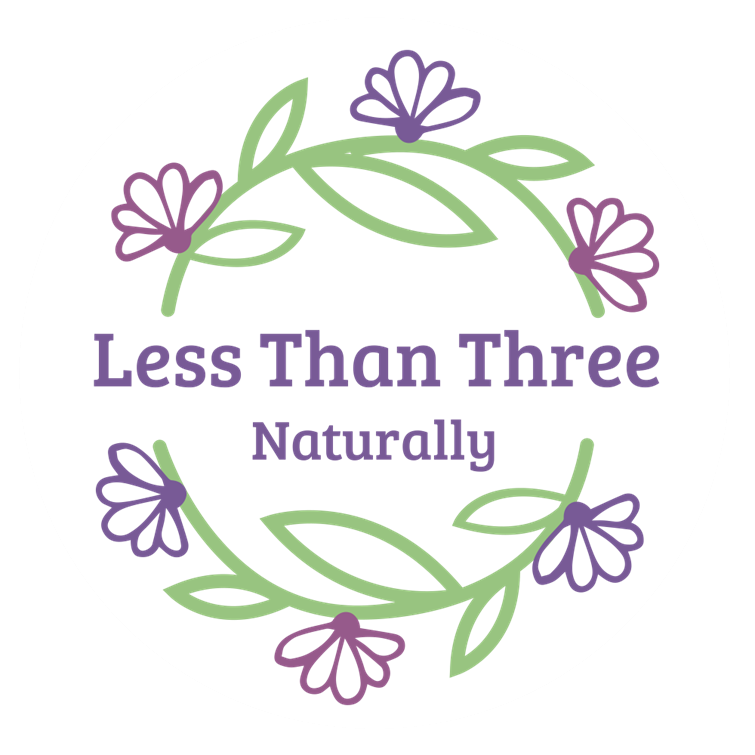
Rosehip oil is derived from the rosa canina rose bush, which is grown mostly in Chile. Unlike rose oil, which is extracted from rose petals, rosehip oil is cold pressed from the fruit and seeds of the rose plant. As well as an oil, Rosehip can also be found as a CO2 extract and as a powder for skincare but also made into teas, jams, jellies and syrups in cooking.
CO2 extracts are concentrated, oil-based extracts that have been extracted through the use of CO2, without exposing the plants to heat or solvents. These extracts sometimes also contain the plant’s essential oil, as well as other oil-soluble components of the plant. They offer a very effective way of harnessing the therapeutic benefits of a plant without the same sensitivity risk you might have with essential oils.
Fruit powders are predominantly made through freeze drying or spray drying, either using the fruit itself or the extract. The fruit is then ground up, from small chunks to a fine powder.
Rosehip oil has a long history as a therapeutic remedy and beauty product. It’s full of vitamins such as A, C and E, antioxidants, and essential fatty acids including linoleic and linolenic acid, that are all valued for their ability to nourish the skin.
Antioxidants and polyunsaturated fatty acids, like linoleic acid, are necessary to keep cell walls strong so that they don’t lose water and also prevent the breakdown of cell membranes in the skin. Strong, healthy cells act as a barrier to prevent bacteria from entering the skin, which can lead to outbreaks and infections. It also contains polyphenols which have been shown to have antiviral, antibacterial, and antifungal properties and anthocyanin, which is thought to help reduce inflammation. Keeping your skin hydrated is important especially for mature skin, in winter and when exposed to air conditioning.
Vitamins A is one of the elements necessary for the production of collagen. Collagen is the building block of skin. It’s essential for skin elasticity and firmness and your body makes less collagen as you age.
Vitamin A can also assist with the healing of scars and helps to accelerate healing and tissue regeneration. Vitamin A is made up of several nutritional compounds, including retinoids. Retinoids are known for their ability to reduce hyperpigmentation and other visible signs of aging with regular use, by encouraging skin cell turnover. In the past I have used included Rosehip in a homemade “scar oil” to assist with scar repair after surgery. The American Academy of Dermatology says keeping a wound moist may help to prevent scars. Applying rosehip in a “scar oil” blend may help prevent wounds from drying out while assisting in repairing scarring.
Because Rosehip oil is considered a “dry” oil, it is non-greasy and the skin easily absorbs it, allowing its antioxidants to travel deep into the skin’s layers. Also, because it is absorbed quickly, it means it is unlikely to clog pores. This makes it a great oil for cleansing, especially for people with oily or acne prone skin.
References:
Healthline. (2018). Rosehip Oil for Face: Anti-Aging, Acne, Dark Circles, and More. [online] Available at: https://www.healthline.com/health/beauty-skin-care/rosehip-oil-for-face [Accessed 3 Mar. 2022].
www.medicalnewstoday.com. (2018). 10 best essential oils for wrinkles: What works best and why? [online] Available at: https://www.medicalnewstoday.com/articles/321645#outlook [Accessed 3 Mar. 2022].
Dallmeier, L. (2014). Best Facial Oil for Scars. [online] Formula Botanica. Available at: https://formulabotanica.com/best-facial-oil-for-scars/ [Accessed 3 Mar. 2022].
Medhurst, B. (2020). The Formulator’s Guide to Superfruits in Skincare. [online] Formula Botanica. Available at: https://formulabotanica.com/formulator-guide-superfruits-skincare/ [Accessed 3 Mar. 2022].
Schechter, J. (2018). The Benefits of Vitamin C for Skin Care. [online] Formula Botanica. Available at: https://formulabotanica.com/vitamin-c-high-performance-skincare/ [Accessed 3 Mar. 2022].
